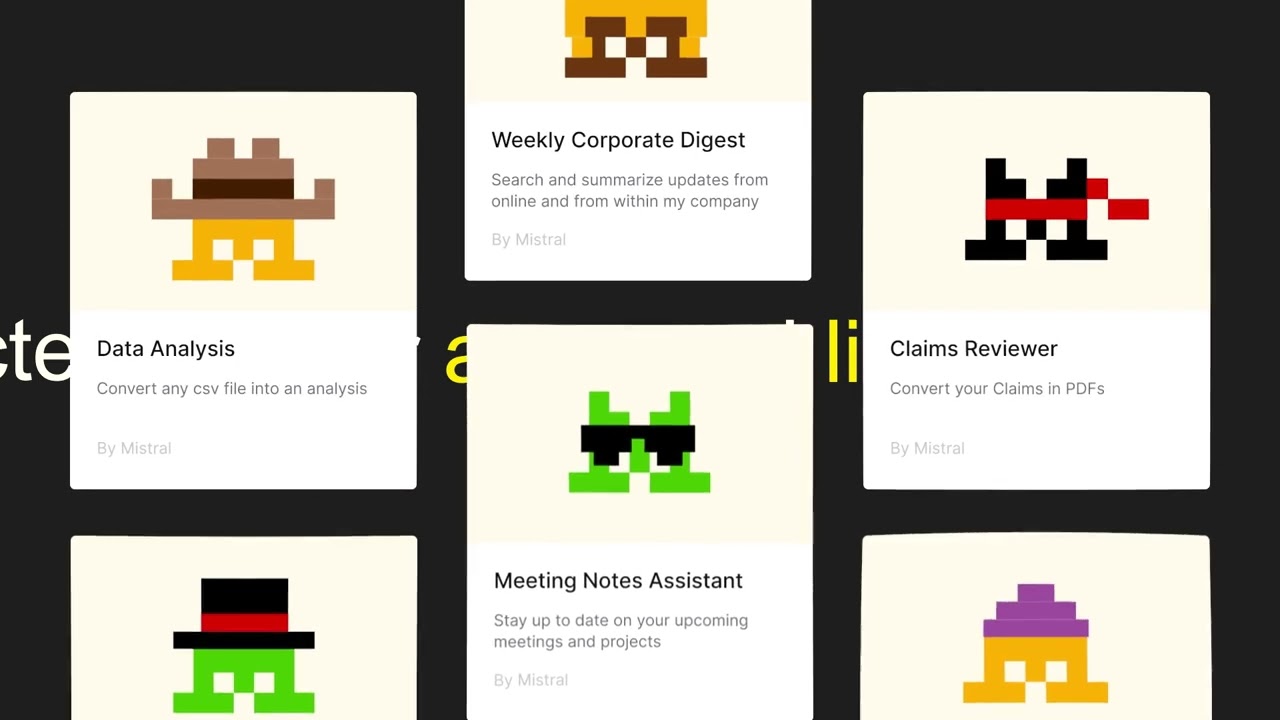European Contender Steps Forward
In a market crowded with tech giants and AI incumbents, Paris-based startup Mistral AI is making a strategic push into the enterprise space with Le Chat Enterprise, a business-focused version of its AI assistant. The new product represents a pragmatic, infrastructure-flexible offering that directly addresses the realities of corporate AI adoption: scattered tools, rigid models, data privacy concerns, and the challenge of real return on investment.
Built on Mistral’s new Medium 3 model, Le Chat Enterprise is not designed to wow with spectacle. Instead, it’s meant to quietly embed itself into everyday workflows — securely, seamlessly, and across teams. Already compatible with Google Drive, SharePoint, OneDrive, Gmail, and Calendar, the assistant can search enterprise documents, summarize files, and connect to private libraries. Additional connectors and templates for custom builds are expected in the coming weeks.
While the launch may seem understated compared to the flashy demos of some Silicon Valley counterparts, the company is making notable headway. Revenue has reportedly tripled in just 100 days, driven primarily by growth outside the U.S., in markets where data sovereignty and system flexibility are not just nice-to-haves — they’re imperatives.
System That Plays by Your Rules
What distinguishes Le Chat Enterprise is not just its features, but how it offers them. The product supports hybrid deployment: customers can choose to host on Mistral’s infrastructure, a public or private cloud, or on-premise. This setup gives organizations the ability to enforce strict access controls and integrate AI within existing compliance frameworks — a critical point for European customers navigating GDPR and data localization laws.
Enterprises can also build their own AI agents, tailored to their specific tasks — no coding required. These agents tap into connected tools and data repositories, making it easier for teams to automate workflows and extract insights. Whether it’s generating summaries, writing reports, or assisting with data queries, the assistant is meant to act less like a chatbot and more like a highly trained colleague.
Mistral emphasizes user control, offering options to personalize AI outputs, store memories, and incorporate feedback loops. The assistant is designed to adapt to team needs over time, without locking users into one model or vendor ecosystem.
Image source: Mistral AI
Positioning AI as Infrastructure
Behind Le Chat Enterprise is a broader thesis: AI should not be a novelty layered on top of business processes, but an operational layer in itself — as essential as a database or communication tool. This perspective underlies the assistant’s design, from its no-frills interfaces to its integration-first approach.
Mistral is betting that many businesses don’t want a “tech disruption” — they want something that works. And so far, this strategy seems to be resonating. With early availability in the Google Cloud Marketplace and plans for Azure and AWS integrations, Mistral is staking its place as a modular, interoperable alternative to more vertically integrated AI solutions.
Closing Notes
Mistral AI’s Le Chat Enterprise is not aiming to dazzle, but to endure — by fitting into the spaces where work already happens, and by giving companies the ability to shape AI around their needs. Whether it can scale this vision in a market where attention often favors the spectacular remains to be seen. But for now, Mistral has built something quietly ambitious: an AI system that shows up to work — and stays out of the way.

